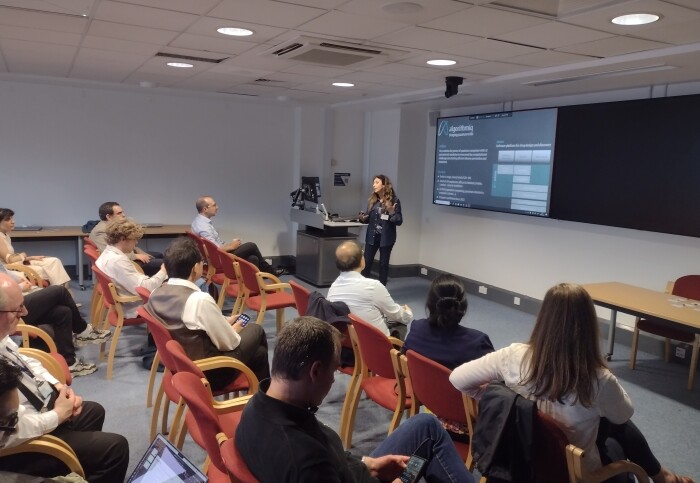Imperial strengthens quantum connections by hosting quantum computing conference

Imperial College London and QuEST recently hosted the second annual Distributed Quantum Computing (DQC) Conference on 16 - 17 May 2024.
Quantum computing uses quantum mechanics to solve problems much faster than normal computers. It uses qubits, which can be in multiple states at the same time, allowing for faster processing of complex problems.
To achieve scalable quantum computing, it is important to develop distributed quantum computing architecture. Such development requires many scientific and engineering experts.
While a quantum computer might be able to solve some computational problems efficiently, building scalable quantum hardware is challenging. Professor Myungshik Kim Department of Physics
The Distributed Quantum Computing Conference recently united world-leading researchers with expertise in quantum computing, ICT, computer science, mathematics and more. Organised by the EPSRC, Centre for Quantum Engineering, Science and Technology, and the Distributed Quantum Computing Project Team, the conference aimed to foster collaboration and provide a platform for attendees to share their latest research in scalable quantum computing.
The event was a step towards developing collaboration and knowledge exchange for distributed quantum computing. Throughout the conference, researchers discussed various topics, including quantum error mitigation, quantum networks, simulating quantum circuits, and circuit partitioning to quantum memory, optical neural networks, and optical switches.
Professor Myungshik Kim from the Department of Physics explains:
"While a quantum computer might be able to solve some computational problems efficiently, building scalable quantum hardware is challenging.
One potential avenue to solving this problem is distributed quantum computing, which involves connecting local quantum processors to perform a large quantum computational problem.
We must work together to overcome challenges in making distributed quantum computing a reality Professor Kin K Leung Department of Electrical and Electronic Engineering
Distributed computing is an established field of research in conventional computing. By bringing together ICT and quantum researchers, we tackle this important problem."
Professor Kin K Leung, from the Department of Electrical and Electronic Engineering added:
"We must work together to overcome challenges in making distributed quantum computing a reality.
Recognising our knowledge gaps is an important step in advancing this field. The conference offered a unique opportunity to unite multidisciplinary researchers to establish a common understanding and ideas for further collaboration."
What's next?
It is hoped that the collaborations formed at the event will continue, strengthening relationships between experts and fostering cross-disciplinary understanding for the development of scalable quantum computing.
To learn more about the Centre for Quantum Engineering, Science and Technology at Imperial and our latest news, please visit our website.
Article text (excluding photos or graphics) © Imperial College London.
Photos and graphics subject to third party copyright used with permission or © Imperial College London.
Reporter
Kayleigh Brewer
Department of Materials